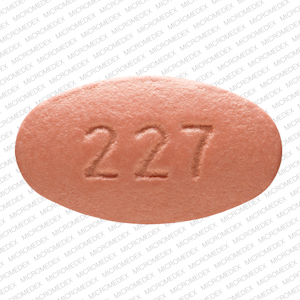Raltegravir Disease Interactions
There are 4 disease interactions with raltegravir.
Raltegravir (applies to raltegravir) hemodialysis
Moderate Potential Hazard, Moderate plausibility.
There were no clinically important pharmacokinetic differences between subjects with severe renal impairment and healthy subjects. No dosage adjustment is necessary for these patients. Because the extent to which raltegravir may be dialyzable is unknown, dosing before a dialysis session should be avoided.
References (1)
- (2007) "Product Information. Isentress (raltegravir)." Merck & Co., Inc
Raltegravir (applies to raltegravir) liver disease
Moderate Potential Hazard, Moderate plausibility.
There were no clinically important pharmacokinetic differences between subjects with moderate hepatic impairment and healthy subjects. No dosage adjustment is necessary for patients with mild to moderate hepatic impairment. Therapy with raltegravir should be administered with caution in patients with severe hepatic impairment, as the pharmacokinetics of raltegravir have not been studied in this population. Liver transaminases and bilirubin should regularly be monitored during therapy.
References (1)
- (2007) "Product Information. Isentress (raltegravir)." Merck & Co., Inc
Raltegravir (applies to raltegravir) myopathy/rhabdomyolysis
Moderate Potential Hazard, Moderate plausibility.
The use of raltegravir has been associated with creatine kinase elevations. There have been reports of myopathy and rhabdomyolysis in patients taking raltegravir. Therapy with raltegravir should be used with caution in patients at increased risk of myopathy or rhabdomyolysis, such as patients receiving concomitant medications known to cause these conditions or patients with a history of rhabdomyolysis, myopathy or increased serum creatine kinase levels.
References (1)
- (2007) "Product Information. Isentress (raltegravir)." Merck & Co., Inc
Raltegravir (applies to raltegravir) PKU
Moderate Potential Hazard, Moderate plausibility. Applicable conditions: Phenylketonuria
Isentress (brand of raltegravir) chewable tablets contain phenylalanine. The 25 mg chewable tablet contains approximately 0.05 mg phenylalanine and the 100 mg contains approximately 0.10 mg phenylalanine. The phenylalanine content should be considered when this product is used in patients who must restrict their intake of phenylalanine (i.e. phenylketonuria).
References (1)
- (2007) "Product Information. Isentress (raltegravir)." Merck & Co., Inc
Switch to consumer interaction data
Raltegravir drug interactions
There are 82 drug interactions with raltegravir.
More about raltegravir
- raltegravir consumer information
- Check interactions
- Compare alternatives
- Reviews (18)
- Side effects
- Dosage information
- During pregnancy
- Drug class: integrase strand transfer inhibitor
- Breastfeeding
- En español
Related treatment guides
Drug Interaction Classification
| Highly clinically significant. Avoid combinations; the risk of the interaction outweighs the benefit. | |
| Moderately clinically significant. Usually avoid combinations; use it only under special circumstances. | |
| Minimally clinically significant. Minimize risk; assess risk and consider an alternative drug, take steps to circumvent the interaction risk and/or institute a monitoring plan. | |
| No interaction information available. |
See also:
Further information
Always consult your healthcare provider to ensure the information displayed on this page applies to your personal circumstances.


